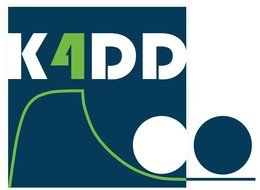Exploring Drug-Target Interactions

HITS Scientists Participate in a New European Research Project
In drug discovery it is often difficult to predict if a potential drug will be effective in humans. Recent studies have shown that the kinetics of the interaction between a drug and its target has a strong influence on the clinical success of a drug. “Kinetics for Drug Discovery” (K4DD) brings together experts from seven European countries. They focus on optimizing binding kinetics for drug candidates with the ultimate goal of improving drug design. K4DD was launched by the Innovative Medicines Initiative (IMI), the world’s largest public-private partnership in healthcare. Coordinators are Bayer HealthCare and Leiden University of the Netherlands. HITS researchers from the Molecular and Cellular Modeling group (head: Rebecca Wade) are among the 20 partners.
Project page
About the Innovative Medicines Initiative (IMI)
IMI is the world’s largest public-private partnership in healthcare. IMI is improving the environment for pharmaceutical innovation in Europe by engaging and supporting networks of industrial and academic experts in collaborative research projects. The research leading to these results has received support from the Innovative Medicines Initiative Joint Undertaking under grant agreement n° 115366, resources of which are composed of financial contribution from the European Union’s Seventh Framework Program (FP7/2007-2013) and EFPIA companies’ in kind contribution.
More info
Press contact:
Dr. Peter Saueressig
Head of Communications
Heidelberg Institute for Theoretical Studies (HITS)
Phone: +49-6221-533245
Peter.saueressig@h-its.org
www.h-its.org
Twitter: @HITStudies
About HITS
HITS, the Heidelberg Institute for Theoretical Studies, was established in 2010 by physicist and SAP co-founder Klaus Tschira (1940-2015) and the Klaus Tschira Foundation as a private, non-profit research institute. HITS conducts basic research in the natural, mathematical, and computer sciences. Major research directions include complex simulations across scales, making sense of data, and enabling science via computational research. Application areas range from molecular biology to astrophysics. An essential characteristic of the Institute is interdisciplinarity, implemented in numerous cross-group and cross-disciplinary projects. The base funding of HITS is provided by the Klaus Tschira Foundation.